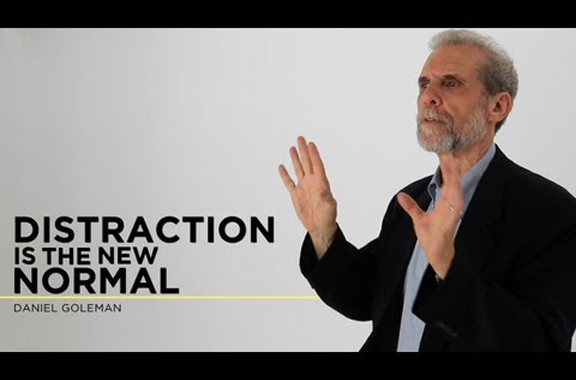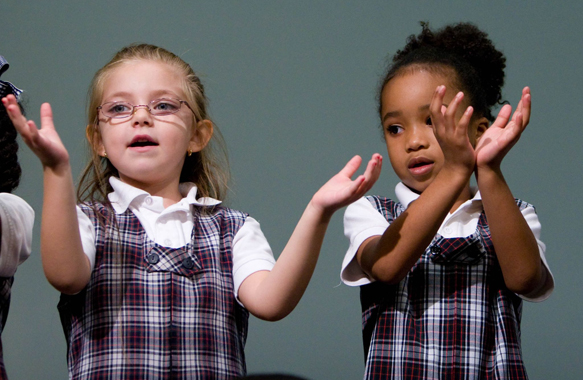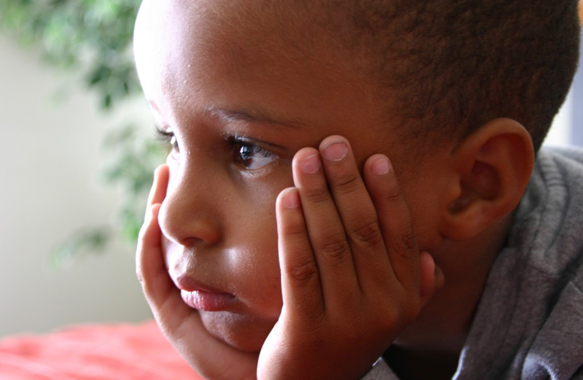Have you ever been in front of an active teen or tween, a twenty or thirty something who is connected
When you are together you are not. Conversation begins and concludes in a matter of seconds. The temptation to turn to a text, to write a tweet…it is all too great. Often you may reflect on how familiar you are with the tops of a friend or family member’s head, but their hearts…those remain unknown to you.
It could possibly be that we do not know the people we associate with and that they do not know themselves. We are lost in a world of avatars, our own and those of others. We have a screen name that screams louder than we. It gets all the attention.
People today seek the company of a companion, but struggle to be with another unless that individual appears on a digital display. Yes, it could be a family member we describe, but might it be you. Are you too one of the millions who is connected and not? How does this affect you, your learning, your relationships, and indeed your reality?
Whether it is you or a familiar Ask yourself, how often are eyes diverted, looking away, or lost? Is conversation a distraction? Do thoughts and digits dart towards a screen? Movements; do these divert attention? Does a sound from across the room cause eyes to roam?
Focus; is that fleeting? And tasks that last for more than mere minutes accomplished?, or…
Is this the state of affairs between you and this other person, or is this you with a friend? The questions we might ask are all about focus. Are we, she, he or we able to focus? If not why not and how might we better chose?
You may have observed the ways that connectedness disconnects us. In a globally connected universe, we are bombarded with vast amounts of information, so vast that we cannot possibly connect, so we disconnect. In other words…
“…a wealth of information creates a poverty of attention…”
― Herbert A. Simon [Political Scientist, Economist.]
Perhaps it is time to sit down, breathe deeply, tune in to thought and tune out distractions. Listen. Look. Reflect and Relate. Realize it is important to cultivate Focus.
Daniel Goleman on the Importance of Cultivating Focus (Video Playlist)
Best-selling author and social-emotional learning pioneer Daniel Goleman offers tips and insights from his new book about how focus drives achievement and success.
Daniel Goleman: The Emotional Atmosphere of a Classroom Matters (Transcript)
Daniel Goleman: If I could change one thing in education, it would be making explicit the now implicit understanding that the emotional atmosphere of the classroom matters. It’s not irrelevant; in fact, it’s essential to learning. And the reason it’s essential to learning, from the scientific point of view, is that the emotional centers of the brain actually can take over the centers for learning, and so our attention goes from what the teacher is saying to that thing that’s upsetting us, and the failure to understand this, I think, handicaps education as a system. So, if we were to make explicit the fact that “yes” it matters that students feel safe; it matters that students feel calm; it matters that they’re attentive. And they won’t be attentive unless they’re calm and now that we’re ready to learn, we can go ahead.
Daniel Goleman: Three Kinds of Focus (Transcript)
Daniel Goleman: There are three kinds of focus. One is inner focus, being aware of our thoughts, of our feelings. This is the basis for being able to manage our inner world. For a child, this is extremely important. It’s called cognitive control. Cognitive control means that you can see when you’re about to do something that maybe you shouldn’t and stop before you do it, not after. In a landmark study of more than 1,000 children who were followed from aged four into their 30s, cognitive control was a better predictor of a child’s financial success and health in their 30s than was either their IQ or the wealth of the family they grew up in. The second kind of focus is empathy. It’s an other focus. It’s focusing on that other person and understanding their inner world, their thoughts, their feelings. The third is an outer focus. Being able to sense and understand the larger systems that impact and shape our lives, whether it’s the dynamics in an organization, whether it’s a school or a business or larger systems like the global systems that support life and how human activity, how our choices of what we buy and do can help or harm those larger systems.
Daniel Goleman: Distraction is the New Normal (Transcript)
Daniel Goleman: The central premise of my book is that today more than ever in human history our ability to focus is challenged by new technologies, by things that are distracting. You see couples at dinner, both looking at their phones and not at each other. You see moms taking care of a kid, holding the kid in one arm and staring at a phone in the other. And the fact is that students and teachers are more distracted than ever. It’s a new normal and yet the basis of learning is being able to pay attention. It takes sustained attention to comprehend what the teacher is telling you. It takes a continuous, unbroken attention to read a passage in a book. And in a time when we’re raising children in an atmosphere where the normal thing to do is to be distracted all the time, we have to be explicit and make an effort more than any time in history to help children learn something very simple, it’s the basis of learning– to pay attention.
Daniel Goleman: Breathing Buddies (Transcript)
Daniel Goleman: One of the ways that children can learn to focus better and strengthen their attention skills, particularly for concentration in school is something I saw demonstrated in a second grade classroom in a public school in Manhattan Spanish Harlem, which is a very impoverished area of New York City. Kids there live in the housing projects and they have very tough lives. I was astonished because the classroom atmosphere was very calm, very focused. Kids were very alert, very attentive to the teacher. What’s the secret here, I wondered. Then I realized why it was. The teacher said every day we do an exercise called “Breathing Buddies.” One by one the children go to their cubby and get their favorite little stuffed animal. Then they find a place on the floor to lie down, they put that animal on their tummy and watch their breath go up, counting one, two, three, and watch it go down, one, two, three, up one, two, three, down, one, two, three. That is training of the attentional circuitry. This is the kind of training which helps children not just focus on what the teacher is saying, but it turns out that same circuitry helps them manage their distressing emotions. So they’re getting a “two-for” they’re getting attention training and self management training, inner self management training. Something as simple as just watching your breath and bringing your mind back when it wanders is that basic repetition of the muscle for focusing.
Daniel Goleman: Attention is Like a Muscle (Transcript)
Daniel Goleman: It may surprise you to know that attention is like a muscle. Like a muscle in the arm, and that there are exercises, mental exercises that can improve attention that strengthen the brain circuitry for attention just like you’d go to the gym and you’d do some reps on a CYBEX machine and get a stronger tricep. These exercises are very simple, but very effective. The social emotional learning curricula have many that are developmentally appropriate so that you teach the same lesson in different ways as children’s cognitive abilities expand with brain growth and as they go through the grades. One of the most effective is something called “the stoplight.” It’s a poster on the wall of a classroom. It says, “When you’re upset, remember the stoplight, red light, stop, calm down, think before you act, yellow light, think of a range of different things you could do now and what the outcome would be. Green light, pick the best one. You can try it. It’s a highly effective method.
Daniel Goleman: The Importance of Downtime (Transcript)
Daniel Goleman: I know I’ve said that children, to learn, need sustained, focused attention, but there are limits to how long any brain can sustain optimal attention. And I think the school day should be aware of this so that it’s paced, so that children’s brains have a chance to recover for the next period of learning. And what’s happening is that glucose, the brain’s energy, gets used up, gets depleted. This is why recess is so important. This is why downtime is so important. We all need a period when we do restore, for example, one thing that restores the brain, it turns out, is focusing on the breath. It’s a neutral thing, doesn’t take a lot of mental effort, keeps us focused, but it’s also a time when the brain is resting. Going for walk, playing, all of these activities are a part of the human repertoire for a good reason. They actually are helping the brain restore itself, so teachers, and educators generally, I think, would do well to be aware of how the brain needs to pace itself and how important it is to schedule regular periods of rest throughout the day. And it’s not just kids that need it, it’s teachers and parents, too.
Daniel Goleman: Parents Teach Focus (Transcript)
Daniel Goleman: Every parent of course is the first coach for kids in focusing and self control. Parents do it naturally. The moment you pick up a toddler who’s crying and you soothe her, you help her calm down. You’re actually modeling for her that behavior and her brain is learning how to calm down on its own. Kids are constantly learning lessons from their parents from infancy on about managing emotions. One of the reason is when a child is first born it actually does not have in its brain the circuitry for modulating a distress. That’s why a baby will express whatever it feels. So a parent is continually modeling for a child how you manage that impulse to run in front of the car, to hit the kid, to do all the things that you’re telling a two year old or a three year old or four year old, “No, don’t do that.” “Just say no” circuitry becomes internalized for kids and they learn to manage their own emotions. And schools that have social emotional learning, that have teachers who care, that have lessons in paying attention and in managing your emotions are simply continuing and complementing what good parents do anyway.












Leave A Comment